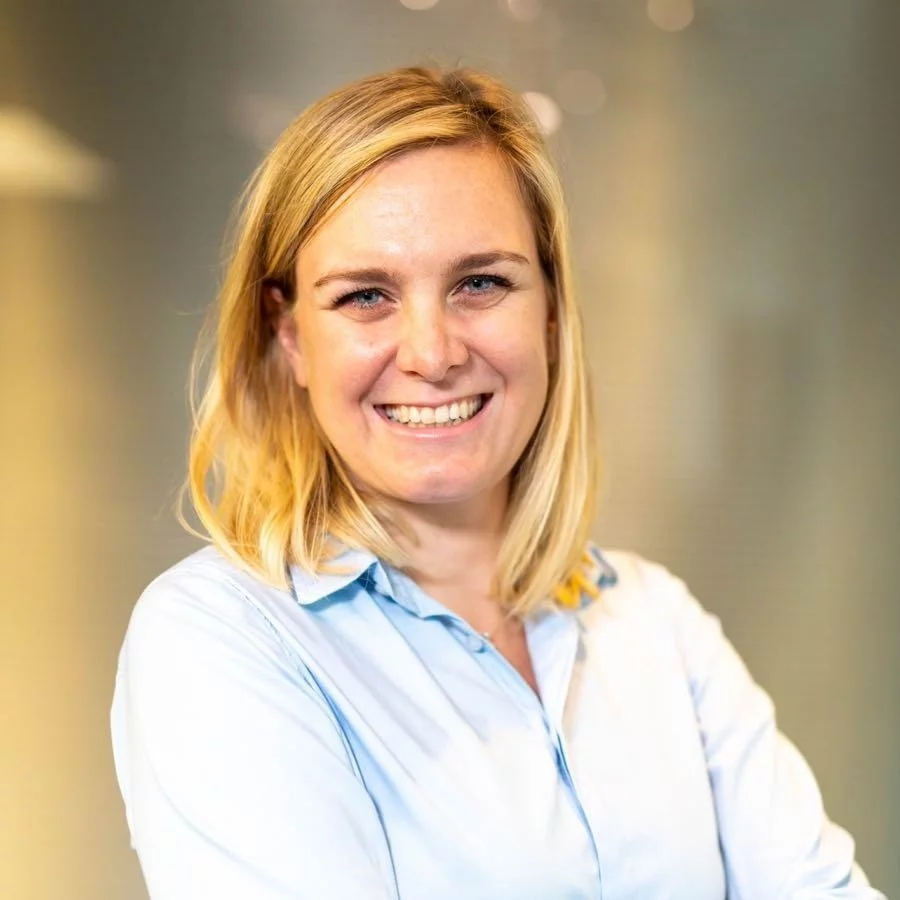Our partner companies are interested in attracting PSI's early career researchers, and we introduce scientists working at partner companies to showcase career perspectives. In today's post, meet Johanna Mehl, who did her PhD in biophysics at ETHZ and is currently an associate at McKinsey & Company. She tells us how she managed the transition away from academia, and what she is working on now.
What was your role at your institution during your PhD, and which division were you part of?
Besides working on my PhD in Biophysics, I was charged with lectures and the preparation and supervision of examinations. I worked for Professor Dr. Viola Vogel at the Laboratory of Applied Mechanobiology in the D-HEST (Department of Health Science and Technology) at ETH Zürich.
What are you doing now and where are you working? What type of projects do you work on?
I am currently an Associate at McKinsey & Company. I mostly work in the Life Sciences industry, supporting pharmaceutical and biotech companies.
Why did you choose McKinsey & Company?
Essentially for two compelling reasons: People and Projects.
Firstly, people I encountered during the interview process made a lasting impression on me. Interacting with multiple colleagues allowed me to gain insight into their respective backgrounds and personalities. Their inspiring stories and the genuine connections I was able to form reassured me that the firm fosters an environment where I can grow professionally and personally.
Secondly, the variety of projects at the firm greatly intrigued me. The opportunity to work on various topics and within different industries was not only appealing but also promised to broaden my horizons. This was particularly intriguing to me, as I had spent several years working on the same project prior to joining the firm.
What does your typical workday look like?
My day starts with email and agenda review and touching base with the responsible project manager to make sure we’re on the same page about tasks and priorities. It is followed by client meetings and workshops sometimes at the client locations. We put in effort in preparing materials in advance and ensure we follow up efficiently afterwards.
Working on deliverables also takes a major part of my day, such as research, data analysis and creating client-specific materials like reports and presentations.
Collaborating with colleagues is at the core of our process, it is common practice to brainstorm and keep a close eye on project progress together. During lunch and short breaks, I take the opportunity to unwind and recharge and catch up with colleagues on lighter topics, like weekend plans. In the evening, our team often meets for dinner, solidifying our professional bonds. If there are any remaining tasks, we have the flexibility to wrap them up at our own pace, ensuring we meet our individual and collective goals.
How did you manage the transition into your new role? What was different, what was similar, what may have surprised you?
Relatively easy! Being a PHD demands you be flexible, disciplined and intrinsically motivated tackling scientific questions. This paired with the ability to connect, interact and draw on the knowledge of your colleagues in the laboratory is very similar to your start at McKinsey. However, surprisingly (on a very positive side) collaboration is of greater importance at McKinsey than what I had experienced during my PhD, you always have the chance to draw in experts for industry expertise or ask your colleagues.
What do you like particularly about your job?
The challenging environment and coaching culture at work drive my passion. Collaborating with colleagues enriches my work and provides learning opportunities while engaging with clients to address their challenges further fuels my enthusiasm for my job. At my core, I am a curious and passionate scientist. I relish the prospect of exploring new fields and engaging in meaningful discussions with subject matter experts. Data analysis, a fundamental aspect of my work, empowers me to distill intricate information and transform it into actionable recommendations, thus propelling our clients towards strategic success. This fusion of teamwork, client interaction, continuous learning, and analytical rigor makes me passionate about my job.
Which of the skills learned during your PhD help you in your new role?
My PhD equipped me with valuable skills for my consulting role. These include conducting in-depth research, analyzing complex data, critical thinking, problem-solving, effective communication, presentation skills, project management, and working independently. These skills are directly applicable to the challenges which I am facing daily as a consultant, when advising clients and developing strategies.
Is there anything you miss now that you are no longer in your PhD?
I miss my colleagues from my time at ETH Zürich, going through the ups and downs of a PhD forges strong personal bonds - but I try to stay in touch.
How will your current role prepare you for any future roles you aspire to?
My role provides exposure to diverse industries, clients and projects, fostering a broad knowledge base and adaptability, hence gives the perfect foundation for any future role. It also enhances problem-solving, critical thinking, and communication skills enabling you to tackle complex challenges and develop innovative solutions. It also offers leadership and valuable networking opportunities essential for future roles, opening doors to new opportunities and connections preparing for any future roles I aspire to!
